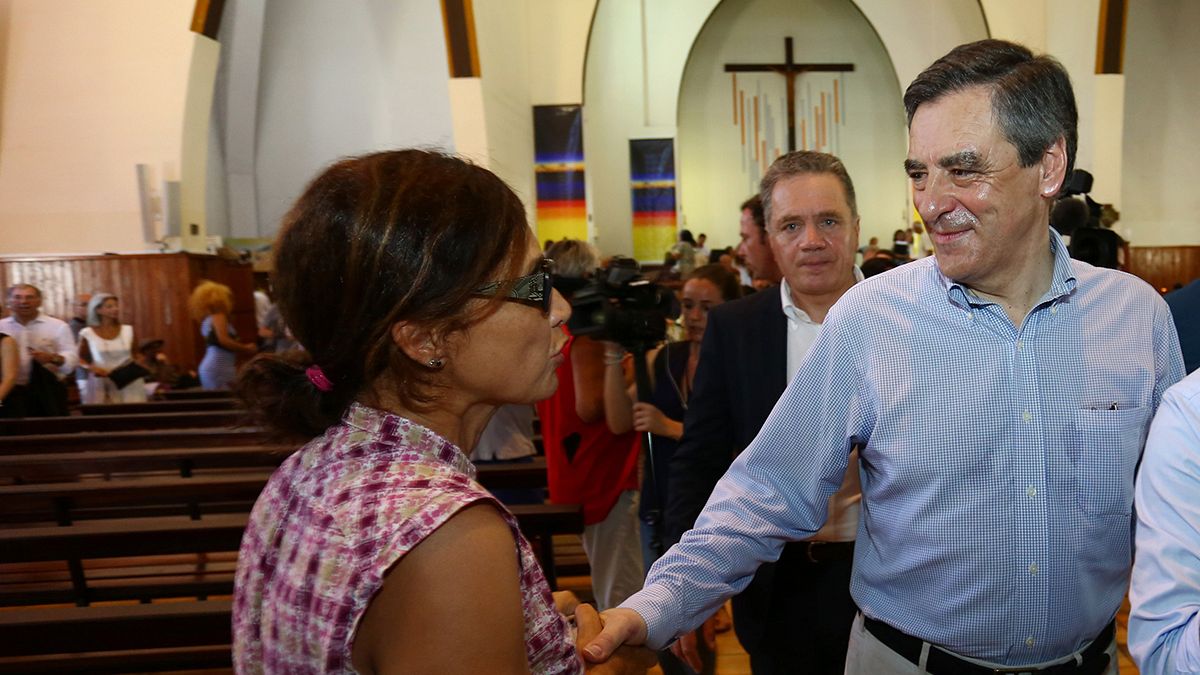By Dr Charles Devellennes lecturer in political and social thought, University of Kent
Religion, once a taboo in French politics, has grown in importance in political discourse in the past decades. Whereas De Gaulle remained largely silent about his Catholic devotion, professions of faith are much more common today – and they have already vastly influenced the current presidential campaign. During the primary of the right to select its candidate for the election, François Fillon gained the most from his overt Catholic devotion. He ousted his rivals Alain Juppé (a self-described agnostic Catholic) and Nicolas Sarkozy (a non-practicing Catholic), who were polling better than he was prior to the primary, giving a firm victory to the Catholic middle classes over their more secular counterparts.
Despite its strength and successes, the Catholic base clearly considers itself as threatened by a variety of other forces. Non-believers, Muslims, Jews, and Evangelicals are the perceived threats for the Catholic majority, estimated at about 65% of the population (although only a fraction of these attend mass regularly). A distinction between Catholics and secularists is often assumed in French politics, yet it is a mistake to assume that the two are incompatible groups. Most Catholics, even some of the most practicing ones, are staunch defenders of the French version of secularism: la laïcité.
This political practice, whereby religion is formally separated from the state, dates back to the famous law of 1905, put in place during the third republic. The law, although it limited the role played by the Catholic Church in education, also favoured Catholics in a couple of ways. In the first instance, it liberalised the Church’s finances in France, which was allowed to raise its own revenue above the fixed amount previously granted by the French state. Secondly, it provided for public finance of historical buildings, to be maintained at the public’s expense while giving full privileges to the Church for using the premises. This is particularly problematic today, for this law amounts to an indirect subsidy of French Catholicism, whilst other religions do not benefit from the law, having few or no historic buildings in France dating back to before 1905. Secularism, in other words, was not so much an attack on the Church, but a compromise between the anti-clerical left, and the Catholic right at the turn of the twentieth century.
The left, on the other hand, is largely non-religious, if not overtly anti-clerical. That is not to say that there are no Catholics on the left (simple demographics suggests otherwise), but they would be wise to downplay the importance of their beliefs if they wish to rise through the ranks of Socialist party. This was the case of Ségolène Royal, the socialist candidate to the 2007 elections, whose Catholic background was used against her by her left-wing political rivals.
There has been an unholy alliance between the Catholic right and the non-religious left around the notion of laïcité, becoming all-the-more evident in attitudes towards Islam. The changing of the 1905 law, to include a ban on the wearing of ‘ostentatious’ religious symbols in schools, was backed by both major parties in 2004. It clearly targeted the Muslim veil, and was the inspiration for the ban on clothing that covers the face in public space (in 2011) targeting women wearing the niqab or the burka, and the (now illegal) bans on ‘burkinis’ by some French mayors in 2016.
It is Marine Le Pen that has best managed to manoeuvre her way through this difficult landscape. By playing both sides against each other, she has managed to be critical of the left for not recognising the importance that Catholicism has played in French culture, and critical of the right for not having done enough to contain the negative influence of Islam on French society. The terrorist attacks of 2015 and 2016 have further strengthened her security discourse – that radical Islam is a threat that has not been tackled adequately by the two main parties. This attack on two fronts has paid up for her: she is able to convince both the non-religious that she defends their secular preferences, and convince the Catholics that she is defending their cultural heritage.
This is not a new strategy for her party. In the early 1970s, few believed that her father, Jean-Marie Le Pen, would have been able to form a coalition between neo-pagans, Catholic monarchists, and fascists. Yet he managed to create a movement out of these disparate groups. Marine Le Pen has continued the efforts of her father, and now recruits extremely well among two groups not traditionally tolerated within the party: gay men and Jews. Florian Philippot, one of the party’s vice presidents, a graduate of the prestigious École Nationale d’Administration, is an illustration of the shadow that the party casts over young gay men, who perceive the hostility of some young Muslims as threat to their lifestyle. Le Pen is the only candidate to propose a ban on the wearing of the veil in public, putting together a tough stance on Islam aiming at attracting these disparate groups.
In the likely event of a face-off in the second round of the elections between Macron and Le Pen, the question will be whether Le Pen’s religious positions will be enough to sway the required number of voters. Le Pen has placed a large bet that she can out-manoeuvre her opponents on religion, and so far her strategy is working wonders.
Picture: Francois Fillon ®, former French prime minister, member of The Republicans political party and 2017 presidential candidate of the French centre-right, greets a woman who attends mass at Notre-Dame de la Paix church in Saint-Gilles les bains as he campaigns on the French Indian Ocean island of the Reunion, February 12, 2017.
By Dr Charles Devellennes, lecturer in political and social thought, University of Kent
The views expressed in opinion articles published on euronews do not represent our editorial position
